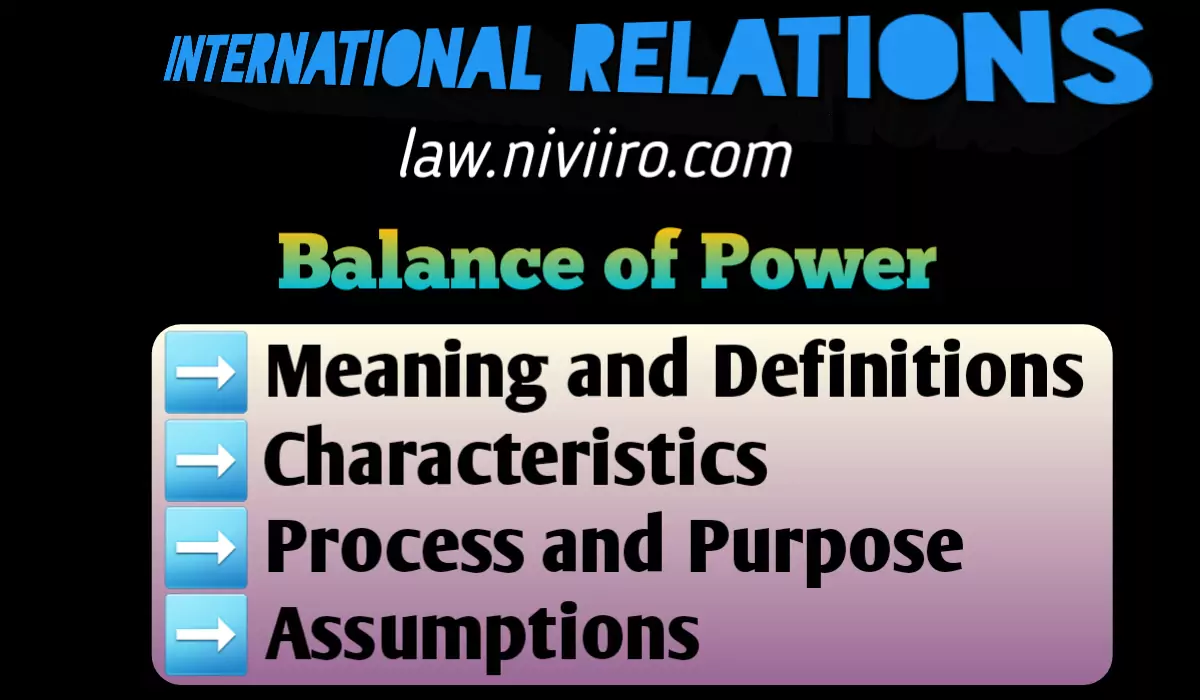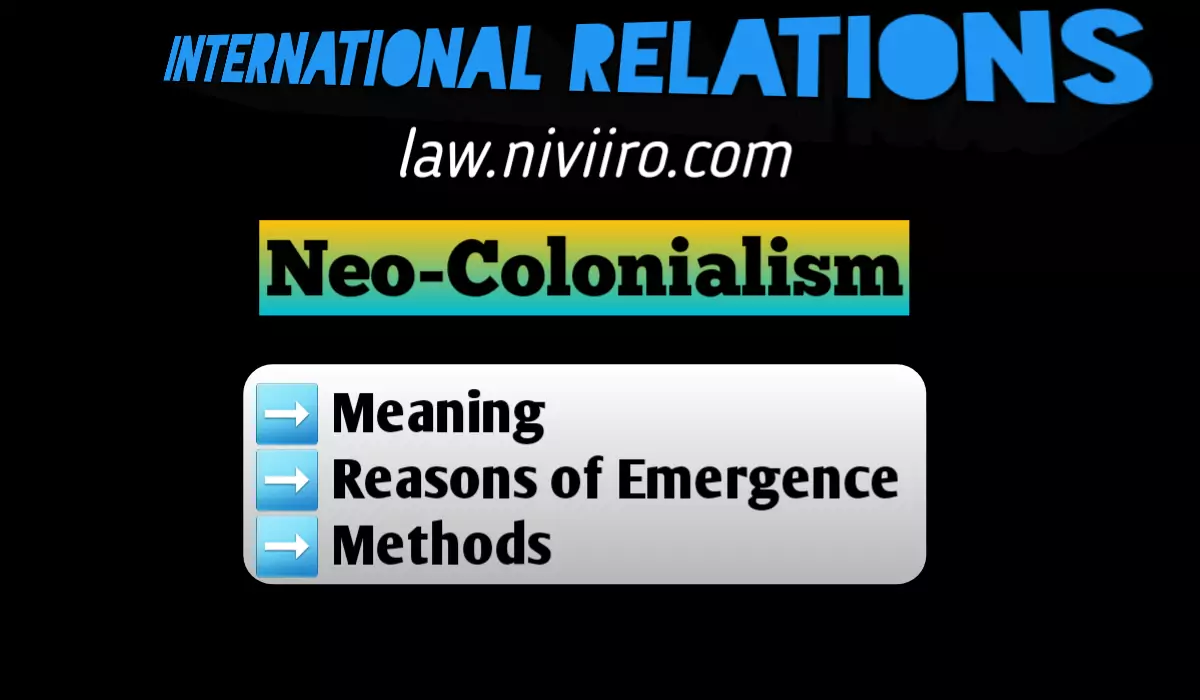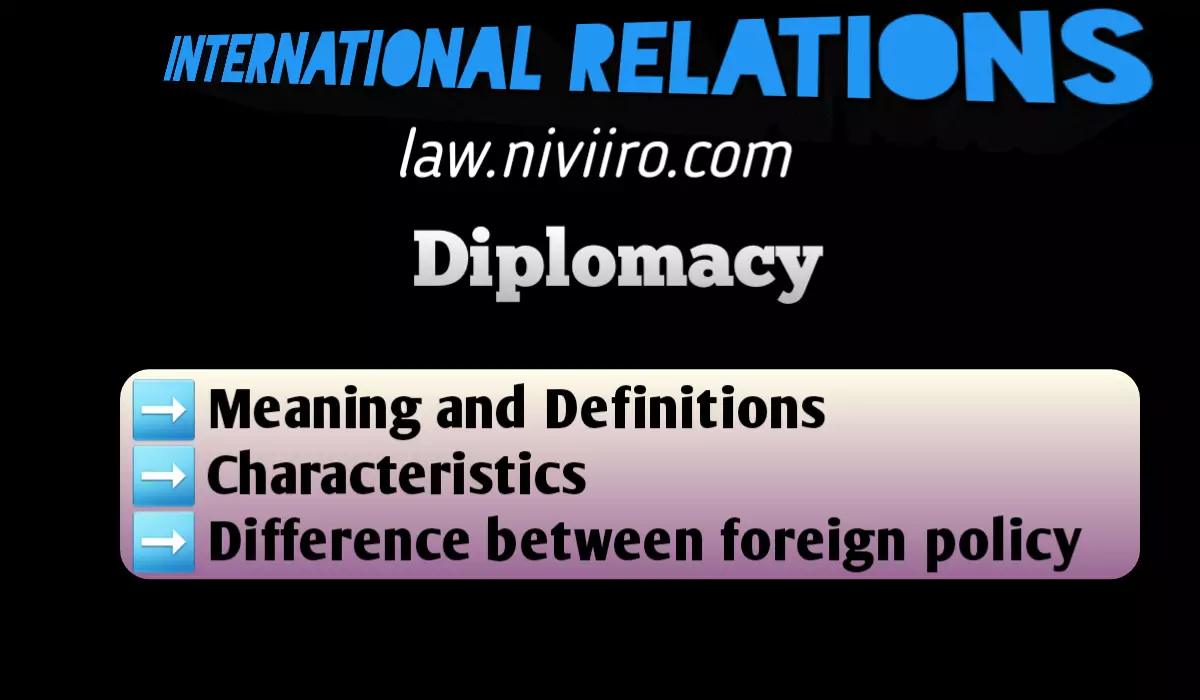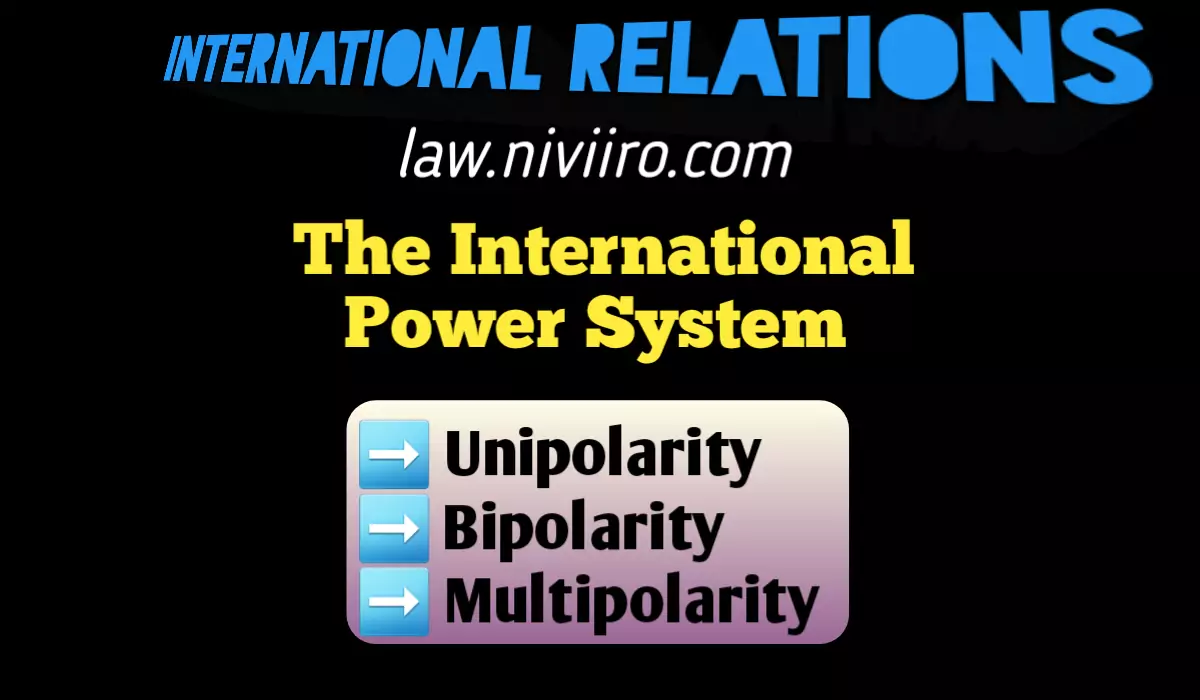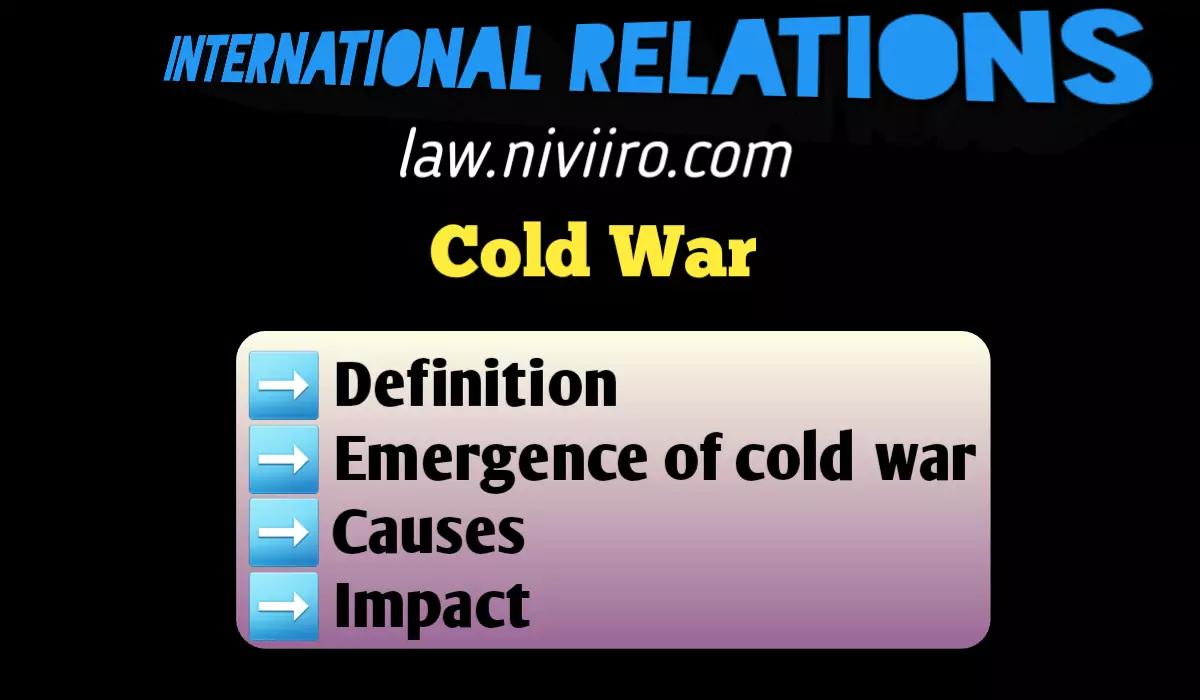The concept of Balance of Power is also called “a basic principle of International Relations” and a “fundamental law of politics.” It is the oldest and most controversial of all the concepts of international politics.
As the organisation of civilization began to take the form of nations, the idea of the balance of power gradually emerged. Whenever and whenever there has been a multiple-state system, the idea of a balance of power has been present.
The ancient world was aware of it and used it, most notably in the city-state of Greece, as well as in Egypt, Babylonia, India, and China. The major phase of this idea, according to Palmer and Perkins, started around after 1500 and was most completely utilised in the 18th and 19th centuries. As long as the nation-state system continues to dominate global politics, it will remain a fundamental tenet of international relations.
Meaning and Definitions of Balance of Power
Meaning of Balance of Power
In the common meaning, the term “balance of power” refers to a roughly equal distribution of power across distinct countries. No country can exist alone. There are many countries with different levels of power, and each one aims to increase its might. States are only interested in a balance that benefits them. In order to accomplish this goal, many nations establish groups, preventing any one nation or other group of nations from becoming powerful enough to rule over others.
The opposing group counterbalances the power of the dominant group. Peace exists as long as there is this type of balance. War is due to the existence of disequilibrium. When the weights on the scales are equal, balance is stable.
There are two types of balances. the straightforward equilibrium that exists between any two sets of almost equal-powering states or nations themselves. Many states or groups of nations are in a state of multiple balance with one another. Global balance, also known as international balance, is the equilibrium of all nations in the globe, whereas regional balance is the equilibrium within the equilibrium and can have an impact on the equilibrium at the global level.
Definitions of Balance of Power
- Nicholas J Spykman observes, “The truth of the matter is that states are interested only in a balance which is in their favour.”
- According to Hartman, “The balance of power may be described as a system in the sense that one power bloc leads to the emergence of other and it ultimately leads to a network of alliances.
- According to Quincy Wright, “Balance of power is a system designed to maintain a continuous conviction in any state that if it attempts aggression it would encounter an invincible combination of the others.”
- Sidney B. Fay says that balance of power means “such a just equilibrium of power among the members of the family of nations as would prevent anyone of them becoming sufficiently strong to enforce its will upon the others.”
- As per Lord Castlereagh, “The balance of power is the maintenance of such just equilibrium between the members of the family of nations as should prevent any of them becoming sufficiently strong to impose its will upon the rest.”
- In the words of Morgenthau, “The balance of power is an actual state of affairs in which power is distributed among several nations with approximate equality” He attaches four different meanings to the term:(i) As a policy aimed at a certain state of affairs at bringing about a certain power distribution; (ii) As an actual state of affairs in which power is distributed among several nations with approximate equality, (iii) As an approximately equal distribution of power, and (iv) As any distribution of power.
Characteristics of Balance of Power
1. The power balance is constantly shifting from being in equilibrium to being out of equilibrium.
2. Man’s active intention, not God’s gift, is what makes it happen.
3. It supports the status quo, yet for a policy to be effective, it must change and be dynamic.
4. Genuine power balances are extremely rare. War is its actual test. If conflict breaks out, it indicates that the true balance of power was absent.
5. It provides both an objective historical perspective and a subjective statesman’s perspective.
6. It is occasionally referred to as a policy.
7. The game of power balancing is exclusively intended for large powers, while lesser powers are utilised only as weights in larger powers’ balances.
8. For the system to function properly, a balancer is needed to maintain the balance.
9. It is fragile and transient.
10. It’s hardly a surefire path to world peace.
Process and Purpose of Balance of Power
The process of maintaining a balance of power is as follows:
If a state or a group of states gains enough power to pose a threat to the freedom and security of some other states, those other states attempt to address the situation by cooperating to increase their power through alliances, arming their armies with a sufficient supply of weapons, and other means. The latter states’ response tried to reestablish the balance of power that had been disrupted by a rise in the influence of the former state or group of states.
So, various nations of the world create groups in such a way that no single nation or a group of nations gets strong enough to rule any other nation or nations since its power is balanced by that of the opposing group. The goal of this balance is to keep everyone involved in the balancing process safe and at peace. Vernon von Dyke contends that while security is essential, peace is frequently seen as the primary goal. War situations arise whenever the balance of power shifts. When the weights on the scales are equal, balance is stable.
Assumptions of Balance of Power
Quincy Wright lists out the following assumptions of Balance of Power:
(1) Existence of a state system where each state is dedicated to upholding and preserving its independence, territorial integrity, security, and economic and political order;
(2) The states worry about how power is distributed overall so that they can protect their interests because they are plagued by the fear that their interests could be jeopardised. They are worried about their position in the global system and work to improve their capacities.
(3) States threaten to start a conflict or actively help a victim of aggression in an effort to defend their core interests. It also presupposes that until a state is militarily superior, it will not threaten or initiate war.
(4) Before taking appropriate action, the states evaluate the strength of the other states.
(5) The states are assisted in pursuing a diplomatic and sensible foreign policy.
Related Post
- Relation between RTI and democracy
- National Power | Definitions | Forms | Methods
- Emerging trends in international relations
- Nature and scope of International Relations
- Political Notes
- RTI notes
- Legal History Notes
- Law of Torts notes
Balance of Power means ?
In the common meaning, the term “balance of power” refers to a roughly equal distribution of power across distinct countries.
Balance of Power means ?
In the common meaning, the term “balance of power” refers to a roughly equal distribution of power across distinct countries.
What are the Assumptions of Balance of Power ?
(1) Existence of a state system where each state is dedicated to upholding and preserving its independence, territorial integrity, security, and economic and political order;
(2) The states worry about how power is distributed overall so that they can protect their interests because they are plagued by the fear that their interests could be jeopardised. They are worried about their position in the global system and work to improve their capacities……..
Characteristics of Balance of Power ?
1. The power balance is constantly shifting from being in equilibrium to being out of equilibrium.
2. Man’s active intention, not God’s gift, is what makes it happen.
3. It supports the status quo, yet for a policy to be effective, it must change and be dynamic…….
Reference Books
- H.J. Morgantheau – Politics among Nations
- J.C. Johari – International Politics
- International Relations in the 21st Century by Pant
- Raymond Aron – Peace and war a theory of International Relations
- Prem Arora – International Relations and foreign policy
- An Introduction to International Relations by John Baylis, Steve Smith and Patricia Owens.













